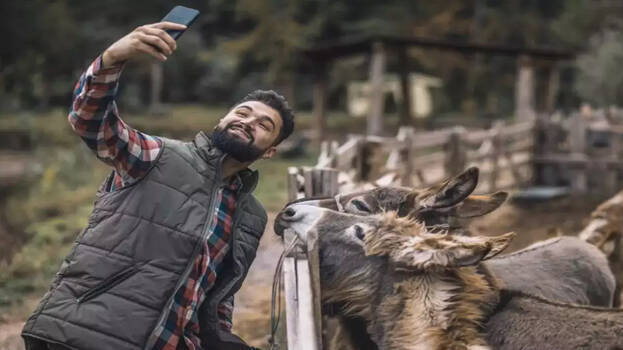
BHUBANESWAR: Over the years, several people have lost their lives while trying to take selfies with wild animals. Now, the Odisha government has announced punishment for those clicking selfies with wild animals without permission. As per the order issued by the Principal Chief Conservator of Forest in Odisha, taking selfies with wild animals without permission is punishable by up to seven years in prison.
It was Principal Chief Conservator Sushant Nanda who issued the order. The order sent to the Divisional Forest Officers states that the act of taking selfies with wild animals not only disturbs the normal life cycle of wild animals but is also a violation of the provisions of the Wildlife (Protection) Act of 1972
Sushant Nanda said that he issued the order after seeing several people share selfies or pictures taken with wild animals on social media. The order says people should obtain proper permission before taking pictures or selfies with wild animals.
Sushant Nanda also stated that more awareness programs will be organized regarding the implementation of the newly issued order. Along with this, it has been decided to take strong action against the domestication of wild animals.
…
